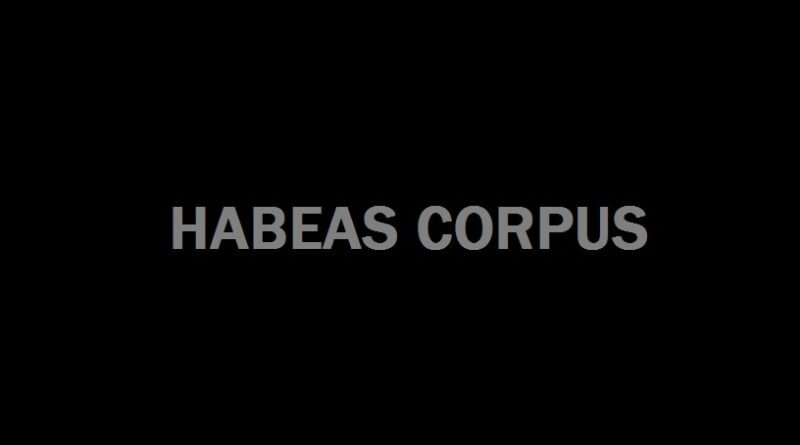The Habeas Corpus Case
The “Habeas Corpus Case,” formally known as ADM Jabalpur v. Shivkant Shukla (1976), stands as a pivotal moment in Indian constitutional jurisprudence. Often cited as a cautionary tale, this case tested the limits of individual rights during times of national emergency and raised profound questions about the judiciary’s role in safeguarding fundamental freedoms.
Background of the Case
The backdrop of the Habeas Corpus case was the Emergency declared by Prime Minister Indira Gandhi on June 25, 1975. The emergency, invoked under Article 352 of the Indian Constitution, cited internal disturbances as the reason. During this period, fundamental rights, including the right to life and liberty under Article 21, were suspended, and thousands of political opponents, activists, and dissenters were detained without trial under the Maintenance of Internal Security Act (MISA).
In response to these detentions, habeas corpus petitions were filed in various High Courts across India, challenging the legality of such arrests. Most High Courts ruled in favor of the detainees, asserting that even during an emergency, the courts retained the power to review the legality of detentions. Dissatisfied with these rulings, the Union government appealed to the Supreme Court, leading to the ADM Jabalpur case.
Issues Before the Court
The primary question before the Supreme Court was:
- Whether the right to approach the courts for habeas corpus is available during the suspension of fundamental rights under Article 359(1) of the Constitution.
This issue centered on the interpretation of Article 21 (right to life and personal liberty) and the extent of judicial review during a state of emergency.
Composition of the Bench
The case was heard by a five-judge Constitution Bench comprising:
- Chief Justice A.N. Ray
- Justice H.R. Khanna
- Justice M.H. Beg
- Justice Y.V. Chandrachud
- Justice P.N. Bhagwati
The Verdict
In a controversial 4:1 majority decision, the Supreme Court ruled that during the emergency, the right to seek habeas corpus was not available. The majority opinion held that the suspension of Article 21 also meant the suspension of any remedy for unlawful detention, even if the detention was without legal authority.
Justice H.R. Khanna’s Dissent
Justice H.R. Khanna delivered a powerful dissent, asserting that the right to life and liberty is inherent and cannot be taken away even during an emergency. He argued that denying the courts the power to review detentions amounted to sanctioning a totalitarian regime, where the executive could act with impunity.
Khanna famously stated:
“Even in the absence of Article 21 in the Constitution, the state has no power to deprive a person of his life or liberty without the authority of law.”
Implications of the Judgment
- Erosion of Judicial Independence: The ruling demonstrated the judiciary’s capitulation to the executive during a period of political turmoil. Critics viewed the majority decision as an abdication of the judiciary’s role as the protector of fundamental rights.
- Impact on Fundamental Rights: The decision effectively rendered citizens powerless against arbitrary state action during the emergency, undermining the sanctity of fundamental rights.
- Legacy of Justice Khanna: Justice Khanna’s dissent became a symbol of judicial courage and integrity. His principled stance cost him the position of Chief Justice, as he was superseded by Justice M.H. Beg.
Criticism and Reflection
The ADM Jabalpur judgment has been widely criticized by legal scholars, political commentators, and even some of the judges involved. In later years, Justices P.N. Bhagwati and Y.V. Chandrachud expressed regret over their decisions.
Subsequent Developments
The judgment’s principles were effectively overturned in later rulings:
- Maneka Gandhi v. Union of India (1978): The Supreme Court expanded the scope of Article 21, emphasizing the concept of “due process” and judicial review.
- 44th Constitutional Amendment (1978): This amendment ensured that certain fundamental rights, including the right to life and liberty, could not be suspended even during an emergency.
Conclusion
The Habeas Corpus case remains a somber reminder of the fragility of constitutional rights in the face of authoritarian tendencies. While the majority judgment tarnished the judiciary’s reputation, Justice Khanna’s dissent stands as a beacon of hope and resilience. The case underscores the importance of an independent judiciary and eternal vigilance in preserving democratic freedoms. Its lessons continue to resonate in contemporary debates about the balance between security and liberty.


Pingback: 25 Important Supreme Court Judgements - Indian Polity - Bharat Articles
Pingback: Landmark Judgments in India - Bharat Articles